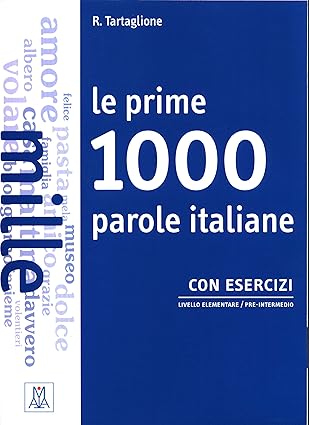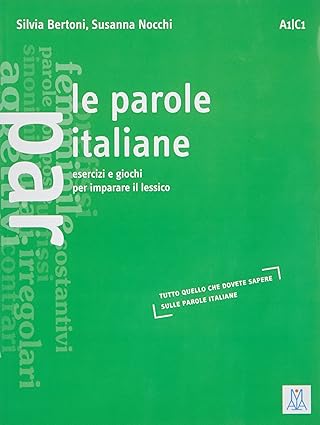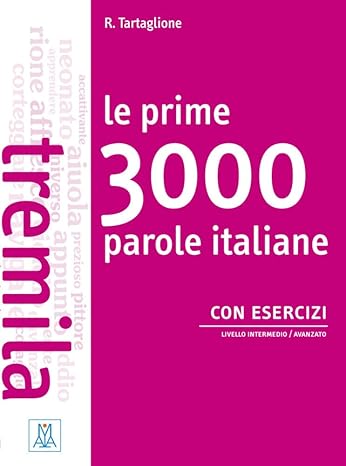
All feminine nouns that end in -a in the plural end in -e and all masculine nouns that end in -o in the plural end in -i.
How to pluralize nouns in Italian?
Italian nouns change the final vowel in the plural as follows:
1. Nouns in Italian that end in (-o)
a). Singular masculine nouns that end in (-o), in the plural they end in (-i).
| Singular (singolare) | Plural (Plurale) |
| Telefono (Phone) Vino (Wine) Libro (Book) Albero (Tree) | Telefoni Vini Libri Alberi |
- Metti Il libro con gli altri libri sul tavolo.
- Put the book with the other books on the table.
- Il bosco è pieno di alberi.
- The forest is full of trees.
b). Singular masculine nouns that end in (-io) have one or two (-i) in the plural.
| Singular (singolare) | Plural (Plurale) |
| Figlio (Son) Orologio (Clock) Zio (Uncle) | Figli Orologi Zii |
- Anna ha 5 figli.
- Anna has 5 children.
- Alberto e Antonio sono gli zii di Anna.
- Alberto and Antonio they are Anna’s uncles.
c). Singular feminine nouns that end in (-o), in the plural they end in (-i).
| Singular (singolare) | Plural (Plurale) |
| Mano (Hand) | Mani |
- Mi lavo le mani.
- I wash my hands.
2. Nouns in Italian that end in (-a)
a). Singular feminine nouns that end in (-a), in the plural they end in (-e).
| Singular (singolare) | Plural (Plurale) |
| Scuola (school) Cena (Dinner) Banana (Banana) Casa (Home) Ragazza (Girl) | Scuole Cene Banane Case Ragazze |
- La scuole sono chiuse nell’inverno.
- The schools are closed in the winter.
- Ragazze belle.
- Beautiful girls.
- Case in affitto.
- Houses for rent.
(Arma) and (Ala) are exceptions as their endings change to -i
| Singular (singolare) | Plural (Plurale) |
| Arma (weapon) Ala (Wing) | Armi Ali |
- Le ali della libertà.
- The wings of freedom.
- Armi nucleari.
- Nuclear weapons.
b). Singular nouns of a person ending in -a, in the plural they end in -i if they refer to men and in -e if they refer to women.
| Sing. | Plur. | |
| Femminile (Feminine) | Dentista (Dentist) Giornalista (Journalist) | Dentiste Giornaliste |
| Maschile (Masculin) | Dentista (Dentist) Giornalista (Journalist) | Dentisti Giornalisti |
c). Singular masculine nouns ending in -a, in the plural end in -i.
| Singular (singolare) | Plural (Plurale) |
| Problema (Problem) Tema (Essay) Atleta (Athlete) | Problemi Temi Atleti |
- Problemi di salute.
- Health problems.
- Gli atleti hanno il corpo forte e sano.
- Athletes have strong and healthy bodies.
d). Singular feminine/masculine nouns ending in -ca and -ga keep the “hard” sound of c and g, (plural: -chi and -ghi), but some don’t add h and change the sound (plural: -ci and -gi).
| Sing. | Plur. | |
| Femminile (Feminine) | Collega (Colleague) Amico (Friend) Medico (Doctor) Parco (Park) Psicologo (Psychologist) Asparago (Asparagus) Cuoco (Cook) Albergo (Hotel) Fuoco (Fire) Fungo (Mushroom) Carico (Load) Obbligo (Obligation) | Colleghi Amici Medici Parci Psicologi Asparagi Cuochi Alberghi Fuochi Funghi Carichi Obblighi |
| Maschile (Masculine) | Amica (Friend) Banca (Bank) Droga (Drug) Collega (Colleague) | Amiche Banche Droghe Colleghe |
e). Singular feminine nouns ending in -cia and -gia preceded by a consonant (consonant + -cia / -gia) in the plural lose the i. Retain the i if -cia and -gia are preceded by a vowel (vowel + cia / gia) or if the accent falls on the i (-cia / -gia):
| Feminine Singular | Feminine Plural |
| Arancia (Orange) Pioggia (Rain) Farmacia (Pharmacy) Ciliegia (Cherry) Camicia (Shirt) Valigia (Suitcase) Bugia (Lie) Allergia (Allergy) | Arance Piogge Farmacie Ciligie Camicie Valigie Bugie Allergie |
f). Nouns in Italian ending in -ia, -scia with the -i stressed retain the -i in the plural.
| Feminine Singular | Feminine Plural |
| Galleria (Tunnel) Scia (Trail) | Gallerie Scie |
3. Nouns in Italian that end in -e
a). All singular masculine and feminine nouns that end in -e, in the plural they end in -i.
| Sing. | Plur. | |
| Femminile (Feminine) | Chiave (Key) Pensione (Pension) Notte (Night) | Chiavi Pensioni Notti |
| Maschile (Masculin) | Cane (Dog) Padre (Father) Ristorante (Restaurant) | Cani Padri Ristoranti |
4. Nouns in Italian that end in -i
a). Singular feminine nouns that end in -i, in the plural end in -i.
| Feminine Singular | Feminine Plural |
| Crisi (Crisis) | Crisi |
5. Nouns in Italian that do not change in the plural
a). Foreign nouns that end with a consonant
- Bar>> bar
- Sport>> sport
- Yogurt>> yogurt
b). Monosyllable
- Re>> re (King)
- Sci>> sci (Ski)
c). Abbreviations.
- Auto>> auto (Car)
- Moto>> moto (Motorcycle)
- Foto>> foto (Photo)
d). Nouns in Italian ending in a vowel with the accent
| Sing. | Plur. | |
| Femminile (Feminine) | Libertà (Liberty) Virtù (Virtue) Università (University) | Libertà Virtù Università |
| Maschile (Masculin) | Tè (Tea) Caffè (Coffee) | Tè Caffè |
Amazon ad
6. Irregular Italian plurals
Here is a list of nouns in Italian with an irregular plural
- L’uovo(m)>> Le uova(f) (Egg)
- Il paio(m)>> Le paia(f)(Pair)
- Il centinaio(m)>> Le centinaia(f) (Hundred)
- Il migliaio (m)>> Le migliaia(f) (Thousands)
- Il miglio(m)>> Le miglia(f) (Mile)
- Il bue(m)>> I buoi(m) (Ox)
- Il carcere(m)>> I carceri(m) (Prison)
- L’uomo(m)>> Gli uomini(m) (Man)
- Il dio (m)>> Gli dei(m) (Gad)
- Il tempio(m)>> I templi(m) (Temple)
- Il cinema(m)>> I cinema(m)(Cinema)
- Il sosia(m)>> I sosia(m)(Double)
- La radio(f)>> Le radio(f) (Radio)
- La specie(f)>> Le specie(f) (Species)
- La serie(f)>> Le serie(f)(Series)
- Il/La finesettimana(f/m) I/Le finesettimana(f/m)>>(Weekend)
Some parts of the body are masculine in the singular, but in the plural they become feminine
- Il ginocchio>> Le ginocchia (Knee)
- Il braccio>> Le braccia (Arm)
- Il dito>> Le dita (Finger)
- Il sopracciglio>> Le sopracciglia (Eybrow)
- Il ciglio >> Le ciglia (Eyelashes)
- L’osso>> Le ossa (Bone)
- Il labbro>> Le labbra (Lip)
Some very common nouns are used only in the plural
- I pantaloni (Trousers)
- I pantaloni corti / I pantaloncini / Gli shorts (Shorts)
- I calzini (Socks)
- Le calze (Stockings)
- Le forbici (Scissors)
- Le mutande (Underwear)
- Gli occhiali (Eyeglasses)
- I portachiavi (Keychain)
Some very common names are used only in the singular
- La frutta (Fruit)
- La fame (Fame)
- La chimica (Chemistry)
- La sete (Thirst)
- Il latte (Milk)
- Il sangue (Blood)
- Il riso (Rice)
Some nouns are singular in Italian, but plural in English
- La gente (People)
- La polizia (Police)
- Il bestiame (Cattle)
Some nouns are plural in Italian, but singular in English
- Le notizie (News)
- I mobili (Furniture)
- Gli spaghetti (Spaghetti)
7. Compound Italian nouns
Compound nouns generally behave like ordinary nouns in the plural. However in some cases, Both elements remain unchanged, and in other cases, the first element changes.
1. Nouns made up of noun + noun generally change their end vowel:
- Il pescecane>> I pescecani (Shark)
- La madreperla>> Le madreperle (Mother-of-pearl)
Note:
a). Feminine nouns containing the word Capo remain unchanged in the plural:
- La caposquadra>> Le caposquadra (Forewoman)
b). Masculine nouns containing the word Capo can have various plurals.
- Il capostazione>> I capistazione (Station Master)
- Il capolavoro>> I capolavori (Masterpiece)
2. Nouns made up of adjective + noun changes the end vowel:
- Il bassorilievo>> I bassorilievi (Bas-relief)
- L’altoparlante>>Gli altoparlanti (Loudspeaker)
But:
- La mezzaluna>>Le mezzelune (Half-Moon)
- Il purosangue>>I purosangue (Thoroughbred)
3. Nouns made up of noun + adjective changes the end vowel of both noun and adjective:
- La cassaforte>> Le casseforti (Safe)
- La terracotta>> Le terracotte (Terracotta)
But:
- Il palcoscenico>> I palcoscenici (Stage)
4. Nouns made of verb + noun:
a). Nouns made of verb + singular feminine noun do not change in the plural:
- Il cacciavite>>I cacciavite (Screwdriver)
- Il portacenere>>I portacenere (Ashtray)
But :
- L’asciugamano >>Gli asciugamani (Towel)
b). Nouns made up of verb + singular masculine noun change the end vowel in the plural:
- Il parafango>>I parafanghi (Mudguard)
- Il passaporto>>I passaporti (Passport)
c). Nouns made up of verb + Plural nouns remain unchanged:
- L’apriscatole>> Gli apriscatole (Tin-Opener)
- L’attaccapanni>>Gli attaccapanni (Hanger)
5. Nouns made up of verb + verb do not change in the plural:
- Il saliscendi>>I saliscendi (Latch)
6. Nouns made up of adverb + verb do not change in the plural:
- Il benestare>>I benestare (Approval)
7. Nouns made up of either a preposition or an Adverb + noun can have various plurals:
- Il senzatetto>>I senzatetto (Homeless Person)
- Il benefattore>>I benefattori (Benefactor)
- La contrabbasso>> I contrabbassi (Double)Bass
- Il soprannome>>I soprannomi (Nickname)
8. When two nouns are separated by a hyphen, only the first noun changes.
- Il Divano-letto>>I divani-letto (Sofa-bed)


